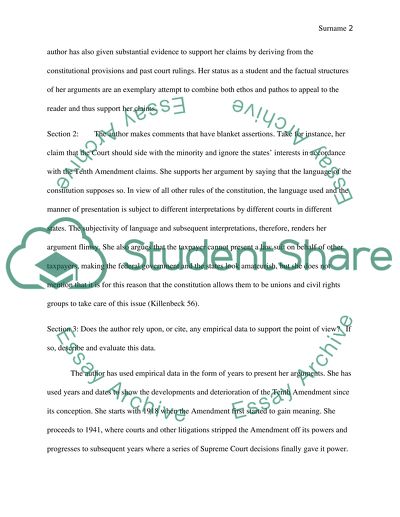Private Party Standing to Raise Tenth Amendment Claims Essay. Retrieved from https://studentshare.org/law/1444894-analysis-of-a-journal-article-who-s-left-standing
Private Party Standing to Raise Tenth Amendment Claims Essay. https://studentshare.org/law/1444894-analysis-of-a-journal-article-who-s-left-standing.


